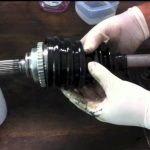
You can buy a car today and decide to sell it tomorrow. Buying your favorite car doesn’t guarantee you will use it forever, you may get tired of it sooner or later and decide to get a replacement, in that case, you may decide to sell it before having it replaced.
Therefore, after selling the car, what’s next? Should you get the replacement immediately? Do you have to notify the DMV that you sold your car? If yes, how do you notify the DMV that you sold your car?
You can notify the DMV that you sold your car by submitting a Notice of Transfer and Release of Liability (NRL) to the DMV to protect you from liability if the car is used for criminal activity, involved in an accident, ticketed, abandoned, etc.
Do I Have to Notify the DMV When I Sell my Car?
Yes, “you have to notify the DMV or the state Motor Vehicle Department when you sell your car”.
For example, in Wisconsin, you are required by law to notify the Wisconsin Department of Transportation (WisDOT) within 30 days you sold your car including the Vehicle Identification Number (VIN), the identity of the buyer, the date of the sale, and the sale price.
The same thing goes for the state of Missouri. You are required by law to notify the Department of Revenue of the sold car within 30 days of the sale being completed except if the car is:
- With a salvage title or junking certificate
- Repossessed (at the time the repossession title is obtained)
- Awarded by a declaratory judgment;
- Sold to a dealer
- Sold to an out-of-state purchaser
- Transferred to a transfer on death (TOD) beneficiary. If the TOD beneficiary assigns the title to another purchaser, the sale must be reported
- Transferred to beneficiaries named in a trust or from an individual to their trust
- Manufactured home
- A vessel or outboard motor; and
- Transferred to an insurance company due to a total loss claim
Notifying the DMV about the sold car will save you from unforeseen circumstances. In fact, if it’s possible, you should notify the DMV immediately after the deal is completed to avoid being held responsible if the car was used for any crime.
For example, if you listed your car for sale on a public website and sold it to a random guy whom you do not know. You should have the DMV notified immediately to avoid being held responsible should the buyer use the car to commit a crime.
If the buyer used the car to commit a felony or is given a ticket for overspeeding, if you have not notified the DMV about the sale and the title has not been transferred, you will definitely get involved in the problem. This is why it’s important to have the DMV notified as soon as possible.
How Do I Notify the DMV that I Sold My Car?
You can notify the DMV when you sell your car by submitting a Notice of Transfer and Release of Liability (NRL) to the DMV. This information will inform them about the deal.
Different states have different methods by which you can notify them when you sell your car. For example, in California, you have just 5 days to notify the DMV about the sale. All you have to do is submit a Notice of Transfer and Release of Liability (NRL) through the DMV official website.
In some states, you may be given 10 days from the day the sale is finalized to inform the DMV. Some may give you 5 days. All you have to do is visit your state of residence DMV where the car is registered and follow the necessary procedure explained on their website to have the notification sent to them.
How Do I Notify the DMV That I Sold My Car in Florida?
You can notify the Florida Department of Highway Safety and Motor Vehicles – Division of Motorist Services that you sold your car by filling out a notice of sale form (HSMV 82050) and submitting it to your local tax collector office or local motor vehicle office within thirty (30) days the sale is completed.
How to Notify the DMV in California
If you’re in California, you can easily notify the DMV about the sale by submitting a Notice of Transfer and Release of Liability (NRL) through their official website. You can click on the LINK here to start.
However, before you can be able to notify the DMV that you sold your car using the Notice of Transfer and Release of Liability on their website, you need to have the following:
- You must have the new owner’s complete name
- You must have the address of the person you sold the car to
- You must know the license plate number on the sold car
- You must have the last five digits of the vehicle identification number (VIN) of the sold car
- You must have the vehicle odometer reading as of the sale. The number on the odometer the day you sold your car
- You should also keep in mind that you will be required to print the confirmation you receive after submitting the NRL to the DMV especially if you wish to keep a copy for your own records.
You have must all these pieces of information ready before you start because you will be required to input them when filling out the forms to notify the DMV.
So, it’s very important you get the full name and address of the buyer as well as the license plate number and the VIN.
If you don’t have these pieces of information or some of them, you can contact the person you sold the car to and have them sent to you. It’s not a difficult thing to do. According to the California DMV,
Submitting an NRL to the DMV does not constitute a transfer of ownership. The vehicle record is not permanently transferred out of your name until the DMV receives a completed application for transfer of ownership and payment of appropriate fees from the new owner.
Therefore, don’t mistake the notification as though your name is no longer on the title of the car. Your record will still be there, however, the record will just be updated that you sold the car until the transfer of title is completed with the necessary fees from the new owner.
How to Notify the DMV in Oregon?
You have 10 days from the day the car is sold to notify Oregon DMV that you sold your car. All you have to do is visit the DMV2U and fill out the form that will be given to you. According to the Oregon DMV,
We will note on your record that you sold the vehicle, but you will remain listed as the owner until the buyer transfers the title.
Therefore, a transfer of title needs to be done to get your record off the car and it should be done as soon as possible so you won’t have to be associated with the car anymore.
Oregon DMV prohibits selling a car that has a loan on it and the loan is yet to be paid off. Before selling the car, you should contact your lienholder for information about their loan payoff process.
How Do I Notify the DMV that I Sold My Car in Nevada?
You have five (5) days to notify the Nevada DMV that you sold your car. However, you need to have a driver’s license and the car must be registered in Nevada before you can notify them about the sale.
All you have to do is visit Nevada DMV’s official website HERE to submit the notification.
You are required to keep your license plates and either use them on another vehicle or turn them in for cancellation within 30 days of the sale. This is to say that when selling your car in Nevada, the license plates are not included.
You need to remove the license plates before the new owner drives off with the car. However, you should take the plates and surrender them to DMV yourself even if a dealer offers to do it for you.
How to Notify DMV When I Sell My Car in Arizona?
When you sell your car in Arizona, you must notify Arizona MVD immediately that your car has been sold. Below are what to do when you sell your car in Arizona:
- Notify Arizona MVD about the sell
- Remove the plate numbers on the car
- Submit the license plate to the Arizona DMV to either transfer it to another car you own or have it destroyed by contacting MVD
- You must sign off the back of the title
- You just give the title to the buyer with any lien release, if applicable.
- You should request a registration credit within 30 days
- Don’t forget to get the odometer readings from the day the car was sold.
How to Notify DMV When I Sell My Car in Connecticut?
You can notify the Connecticut DMV that you sold your car by canceling your registration with the DMV. You can do this online or by visiting the DMV office. If you prefer to notify them online, ensure to print out your receipt.
However, before selling your car in Connecticut, you must:
- Complete and sign the reverse side of the certificate of title and give it to the new owner along with a bill of sale.
- Have a copy of the completed title and bill of sale for your records and keep it safe.
- Remove the license plates on the car
In Connecticut, you can draft your own bill of sale, because there is no special form required. Therefore, if you wish to draft your own bill of sale, it must contain the following information:
- Name and address of the purchaser
- Name and address of the seller
- Description of vehicle such as make, model, year, color, and vehicle identification number
- Sales price
- Date of sale
- Signature of seller
How to Notify DMV When I Sell My Car in Washington DC
You can notify Washington DMV that you sold your car online or in person, by completing the Vehicle Report of Sale form without logging in or creating an account or joining or logging into License eXpress to report the sale from your account within 5 days of the sale is completed.
You can also notify them by mail by filling out the Vehicle Report of Sale form and mailing it or bringing it in person to the vehicle licensing location of your choice.
You should include a check for the fee (make checks out to the “Department of Licensing”). This is because, in Washington DC, there is a $13.25 charge to report the sale of a vehicle.
However, you need to remove the license plates of the car to encourage the new owner to transfer ownership of the car. You also need to gather all the information needed to complete the notification to the DMV. This information is:
- License plate number (include all letters and numbers on the plate)
- Date of the sale or transfer
- Sale price (enter zero if a gift or inheritance)
- Name and address of the person or organization who took ownership of the vehicle
- VIN – Vehicle ID number
You must ensure that these pieces of information are correct. If you notice a mistake in the information after the notification is submitted to the DMV, you can visit the Vehicle Licensing Location to explain the error. The report will be deleted and you’ll need to file another one. Don’t forget to keep a copy of all the records you filed/submitted.
Pros of Notifying DMV that You Sold Your Car
As reiterated earlier, notifying the DMV that you sold your vehicle can protect you from liability if the vehicle is:
- Used for criminal activity.
- Involved in an accident.
- Ticketed.
- Abandoned (fee)
Conclusion
Since different DMVs have different ways through which you can notify them about the sold car, we recommend you visit your state of residence DMV where the car is registered and look for the link to notify them about the sale to avoid making a mistake.









